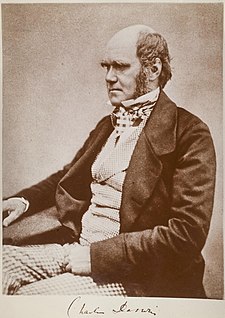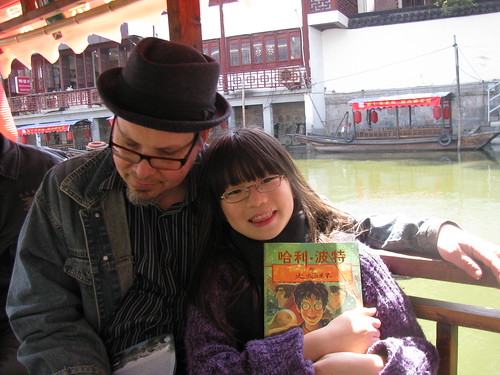|
|
Friday, February 13th, 2009
Another chapter of Elizabeth Costello, another bunch of references.
Robert Duncan is an American poet from California. (Ellen has heard him read but says he was "considered old-fashioned" by her cohort.) Elizabeth heard him read "A poem beginning with a line from Pindar", the only time she met him, and it turned her on. She thinks of him while reading Susan Mitchell's prose poem  "Erotikon (a Commentary on «Amor and Psyche»)" (this link is to Google Books, I'm not sure if it remains usable in the long term.) "Erotikon (a Commentary on «Amor and Psyche»)" (this link is to Google Books, I'm not sure if it remains usable in the long term.)
And shall I come sweet sex to thee
bound truelovewise?
O take fast hold, said Sex to me,
of the moneybox, and night was our koine
with its bleats and glottic stops
its suctions and seductions.
All night we laved a fierce lallation.
Wake now, my love, I said to Sex.
Be not overly
subtle with periods and semicolons.
Take fast hold of the quim and quid.
By morning I was catamount.
Sex was microcephalic.
The legend of Eros and Psyche, which I feel like I really ought to know already, is the story of Venus attempting to humiliate her mortal daughter Psyche by the agency of her divine son Eros. (Duncan's poem also has reference to this legend.) Why the interest in Psyche among American poets, she wonders? Do they find something American in her, the girl who, not content with the ecstasies provided night after night by the visitor to her bed, must light a lamp, peel back the darkness, gaze on him naked? In her restlessness, her inability to leave well enough alone, do they see something of themselves? Anybody know what is the movie referenced here:
She thinks of a movie she saw once, that might have been written by Nathanael West though in fact it wasn't: Jessica Lange playing a Hollywood sex goddess who has a breakdown and ends up in the common ward of a madhouse, drugged, lobotomized, strapped to her bed, while orderlies sell tickets for ten minutes at a time with her. 'I wanna fuck a movie star!' pants one of their customers, shoving his dollars at them.
Please speak up in comments if you know. (Update: paledave says it is Frances (1982).)
Interesting that this is the first chapter not to include a speech. This makes me think the talk on censorship in Chapter 6 was a turning point for the novel, and that Coetzee is giving us an interlude here. (Would kind of like to know how the conference in Chapter 6 played out, what were the repercussions for Costello and for her reputation...)
posted evening of February 13th, 2009: 4 responses
➳ More posts about Elizabeth Costello
|  |
|
 So I've been walking around for a couple of weeks with a new glasses prescription in my pocket... Finally today I took it in to the shop and bought a new pair of glasses, and wow! It is like stepping through a portal into a new reality, one where lines are much sharper and more distinct. Suddenly the patches of color around me have definite shapes and are clearly separated from one anther. It is a pleasant sensation. So I've been walking around for a couple of weeks with a new glasses prescription in my pocket... Finally today I took it in to the shop and bought a new pair of glasses, and wow! It is like stepping through a portal into a new reality, one where lines are much sharper and more distinct. Suddenly the patches of color around me have definite shapes and are clearly separated from one anther. It is a pleasant sensation.
I took Ellen's advice on which frames to purchase (pictured above), probably a wise move -- initially I had my heart set on a pair of dark plastic round frames which (I thought) made me look a lot like Gary Shteyngart in this photo.
posted afternoon of February 13th, 2009: 2 responses
|  |
|
I seem to have picked up several new readers in the last couple of weeks, bringing my total to the high single digits or low double digits. If you have recently started reading the site, and you don't mind if I know about it, please leave a comment on this post or at the Guestbook -- I'd love to know who I'm writing to. If you prefer to remain anonymous, no worries, disregard this post -- I understand that impulse as well.
 (A brief rundown of this blog's history, from last spring, in case that interests you. Kind of dull frankly.)
posted morning of February 13th, 2009: 2 responses
➳ More posts about The site
|  |
|
 Not only is today Friday the 13th -- also it is a special day for the Unix clock. This evening at 30 seconds past 6:31, it is 1,234,567,890 seconds since the Unix epoch. Not only is today Friday the 13th -- also it is a special day for the Unix clock. This evening at 30 seconds past 6:31, it is 1,234,567,890 seconds since the Unix epoch.
posted morning of February 13th, 2009: 1 response
|  |
Thursday, February 12th, 2009

 Australian blogger Wildly Parenthetical linked a few weeks ago to the Cockatoo Island Project -- photographer Patrick Boland's documentary of the old, rusting disused installations on Cockatoo Island in Sydney harbor ("Peter Panâ??s Never Never Land for a photographer who likes industrial and historical decay"). Magnificent! (As Maurice said to me, "May we all decay so colorfully!") Australian blogger Wildly Parenthetical linked a few weeks ago to the Cockatoo Island Project -- photographer Patrick Boland's documentary of the old, rusting disused installations on Cockatoo Island in Sydney harbor ("Peter Panâ??s Never Never Land for a photographer who likes industrial and historical decay"). Magnificent! (As Maurice said to me, "May we all decay so colorfully!")
posted evening of February 12th, 2009: 1 response
➳ More posts about Pretty Pictures
|  |
|
Interesting, so now I'm reading Elizabeth Costello and I'm seeing arguments about morality and animal rights everywhere I look. Today Saramago is writing about lobsters and geese: Putting a living lobster in boiling water and cooking it is an old culinary practice in the western world. It seems that if the lobster were dead in the bath, its final flavor would be different, for the worse. There are furthermore those who say that the rosy color with which the crustacean leaves the pot is due precisely to the high temperature of the water. I don't know it, I'm saying what I've been told, I am incapable of properly frying an egg. One day I saw in a documentary how to prepare chickens, how to kill and butcher them, and I was very close to throwing up. And the other day, if I am remembering right, I read a magazine article about the use of rabbits in the manufacture of cosmetics, and there I found out that the tests to prevent any possible irritation caused by the ingredients of shampoos involve applying them directly to the eyes of these animals, after the fashion of the dreadful Dr. Death, who injected petroleum into the hearts of his victims. Now, a brief notice appears in the periodicals informing me of how, in China, the birds' feathers which are destined to be stuffing for pillows are plucked out the same way, while living, after which they are cleaned, disinfected, and exported for the enjoyment of civilized societies which find it proper and fashionable. I will not comment, it is not worth the trouble, these feathers are enough.
posted evening of February 12th, 2009: Respond
➳ More posts about Saramago's Notebook
|  |
How will Amsterdam react to Elizabeth Costello in her present state? Does the sturdy Calvinist word evil still have any power among these sensible, pragmatic, well-adjusted citizens of the New Europe? Over half a century since the devil last swaggered brazenly through their streets, yet surely they cannot have forgotten.
Some notes on Chapter 6 of Elizabeth Costello:The novel Costello is reading at the beginning of the chapter is The Very Rich Hours of Count von Stauffenberg by Paul West. West wrote a review of Elizabeth Costello for Harper's, under the title "The Novelist and the Hangman"; however that review is not available online. Costello refers to Stalin as "Koba the Bear, [Hitler's] older brother and mentor" -- this seems ahistorical to me and reeks vaguely of Holocaust denialism. Stalin and Hitler were both brutal tyrants and genocidaires; but there was not a mentor relationship. It is very interesting to watch Costello, the novelist, reading and reacting to West's novel. I'm still wondering what the student who tried to make a scene at Costello's lecture in Chapter 1 wanted to talk about. Was she a vegetarian? A person morally opposed to vegetarianism? Perhaps a biology student upset about Costello's stand against animal research? The Holocaust-belittlement would not have been an issue at that point in time unless she had made the same remarks previously; but that seems unlikely.
posted evening of February 12th, 2009: Respond
➳ More posts about J.M. Coetzee
|  |
|

Abraham Lincoln and Charles Darwin were both born on Feb. 12, 1809. In different locations though, and I don't think their paths ever crossed. Still, intriguing.

 ...Come to think of it, now I'm thinking Dinosaur Comics made note of this a couple of years ago. Or some similar forum. Hm.

Update: and what do I find out now, but it is also Acephalous' birthday.
posted afternoon of February 12th, 2009: Respond
|  |
Wednesday, February 11th, 2009
I am a comic novelist, idiot-savant of the humanities; lecturing is outside my remit. Hendrik Hertzberg alerted me today to the publication of Zadie Smith's article "Speaking in Tongues" in the current NY Review of Books. It's adapted from a lecture she gave at the NYPL's "NYPL Live" series in December; you can download a recording of the lecture from the series page. Smith speaks very eloquently of Pygmalion and of Dreams from My Father, of Obama's "story of a genuinely many-voiced man".We'll see if Obama's lifelong vocal flexibility will enable him to say proudly with one voice "I love my country" while saying with another voice "It is a country, like other countries." I hope so. He seems just the man to demonstrate that between those two voices there exists no contradiction and no equivocation but rather a proper and decent human harmony.
posted evening of February 11th, 2009: Respond
➳ More posts about Zadie Smith
|  |
|
Saramago's blog entry today quotes one of my favorite passages from The Cave.
We say to the confused, Know thyself, as if knowing yourself was not the fifth and most difficult of human arithmetical operations, we say to the apathetic, Where there's a will, there's a way, as if the brute realities of the world did not amuse themselves each day by turning that phrase on its head, we say to the indecisive, Begin at the beginning, as if beginning were the clearly visible point of a loosely wound thread and all we had to do was to keep pulling until we reached the other end, and as if, between the former and the latter, we had held in our hands a smooth, continuous thread with no knots to untie, no snarls to untangle, a complete impossibility in the life of a skein, or indeed, if we may be permitted one more stock phrase, in the skein of life. I just love to read this sentence! It is the Alpha and the Omega of Saramago's beautiful voice.... Anyway I was meaning to post a translation of this entry of Saramago's, from a few days ago, because I found it touching:
Sigifredo López is the name of a Colombian lawmaker held captive for seven years by the FARC and who managed to recover his liberty thanks, among others, to the valor and persistence of senator Piedad Córdoba, principal director of the social and humanitarian movement, "Colombians for peace". Thanks to a set of circumstances which seemed impossible, Sigifredo López, who formed part of a group of eleven hostage lawmakers, of whom ten were not long ago assassinated by the terrorists, was able to escape the massacre. He is now free. In the press conference held in Cali after his escape, he believed he needed to express his gratitude to Piedad Córdoba in terms which would shake the world. Here we come to these words and these frightful images. I have never been able to brag of emotional fastness. I cry easily, and not because I am old. But this time I was obliged to break out in sobs when Sigifredo, to express his infinite gratitude to Piedad Córdoba, compared her to the doctor's wife in Blindness. Put yourself in my place, thousands of kilometers separate me from these images and these words, and poor me, melting away in tears, I had no other remedy but to take refuge in Pilar's shoulder and to let them run. My entire existence, as a person and as a writer, has been justified by this moment. Thank you, Sigifredo.
There is video of López' press conference at the link. The AP carried a brief story about his release. Democracy Now! has an interview (from last summer) with Piedad Córdoba, where she discusses negotiations with FARC.
posted evening of February 11th, 2009: Respond
➳ More posts about José Saramago
| Previous posts
Archives  | |
|
Drop me a line! or, sign my Guestbook.
•
Check out Ellen's writing at Patch.com.
| |

